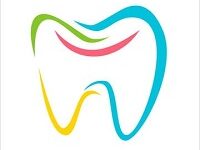Combating Bad Breath: Daily Habits for Fresher Breath
Are you tired of feeling self-conscious about your breath? It’s time to put an end to those embarrassing moments when you open your mouth and the room suddenly clears.
We all know how important it is to have fresh breath, but sometimes even brushing your teeth twice a day just isn’t enough. Luckily, there are daily habits you can adopt to combat bad breath and keep your breath fresh all day long.
So, what are these habits and how can they help you achieve the confidence of fresh breath? Stay tuned, because we’re about to reveal the secrets to fresher breath that will have everyone wondering what your secret is.
Brushing Technique: Proper Brushing Habits for Fresher Breath
To ensure fresher breath, it’s crucial that you maintain proper brushing habits. Brushing your teeth isn’t just about scrubbing away visible food particles; it’s about effectively removing plaque, bacteria, and odor-causing substances from your mouth.
To achieve this, start by choosing a toothbrush with soft bristles that can reach all areas of your mouth. Apply a pea-sized amount of fluoride toothpaste and hold your brush at a 45-degree angle against your gumline. Gently move the brush in circular motions, covering all surfaces of your teeth, including the front, back, and chewing surfaces.
Don’t forget to brush your tongue as well, as it can harbor bacteria that contribute to bad breath. Aim to brush for a full two minutes, twice a day, and be thorough yet gentle to avoid damaging your gums. Replace your toothbrush every three to four months to ensure its effectiveness.
Additionally, don’t forget to floss daily, as it helps remove plaque and food particles from between your teeth and along the gumline.
Flossing Routine: the Importance of Daily Flossing
Now it’s time to talk about the importance of daily flossing in your oral hygiene routine.
By flossing daily, you can remove plaque and food particles that your toothbrush can’t reach, helping to prevent gum disease and tooth decay.
Make sure to use proper flossing techniques to ensure you’re effectively cleaning between your teeth and along the gumline.
Daily Flossing Benefits
Make daily flossing a part of your oral hygiene routine to experience the numerous benefits it offers. Flossing is an essential step in maintaining good oral health and preventing bad breath. By flossing daily, you can remove plaque and food particles that your toothbrush may miss, reducing the risk of cavities and gum disease.
Flossing also helps to stimulate the gums and improve blood circulation, promoting healthier gums. Additionally, regular flossing can contribute to fresher breath by eliminating odor-causing bacteria trapped between teeth.
It’s important to note that proper flossing technique is crucial for optimal results. Ensure that you gently glide the floss between each tooth, reaching below the gumline, and use a clean section of floss for each tooth.
Start making daily flossing a habit and enjoy the benefits it brings to your oral health.
Proper Flossing Techniques
Using proper flossing techniques is essential for maintaining good oral health and preventing bad breath. When flossing, make sure to use a piece of floss that’s about 18 inches long. Wrap the ends of the floss around your middle fingers, leaving about 1-2 inches of floss in between. Hold the floss tightly between your thumbs and index fingers.
Gently slide the floss between your teeth, making a C shape around each tooth. Move the floss up and down, rubbing it against the sides of each tooth. Be careful not to snap or force the floss into your gums, as this can cause irritation. Repeat this process for each tooth, using a clean section of floss each time.
Tongue Cleaning: How to Remove Bacteria From Your Tongue
When it comes to maintaining fresh breath, brushing your teeth alone may not be enough. That’s where tongue cleaning comes in.
Brushing Vs Scraping
To effectively remove bacteria from your tongue, incorporate tongue scraping into your daily oral hygiene routine. While brushing your teeth is essential for maintaining good oral health, it may not be sufficient to eliminate the bacteria that accumulates on your tongue.
Tongue scraping, on the other hand, offers a more thorough and effective way to remove the bacteria and food debris that can cause bad breath. By gently scraping your tongue with a tongue scraper, you can remove the layer of bacteria that forms on the surface of your tongue.
This simple act can significantly reduce bad breath and improve your overall oral hygiene. So, next time you brush your teeth, don’t forget to give your tongue some attention and incorporate tongue scraping into your routine.
Benefits of Tongue Cleaning
Incorporating tongue cleaning into your daily oral hygiene routine can offer numerous benefits for fresher breath and improved overall oral health. Cleaning your tongue helps remove bacteria and food particles that can contribute to bad breath. By scraping your tongue, you can reduce the build-up of plaque, which can lead to tooth decay and gum disease.
Tongue cleaning also helps to improve your sense of taste by removing the coating that can dull your taste buds. Additionally, it can help prevent the development of oral thrush, a fungal infection that can cause white patches on your tongue.
Regular tongue cleaning can also enhance the effectiveness of your tooth brushing and flossing, leading to a healthier mouth and a more confident smile.
Mouthwash Options: Choosing the Right Mouthwash for Fresh Breath
Consider the various mouthwash options available to ensure you choose the right one for achieving fresh breath. With so many choices on the market, it can be overwhelming to know which mouthwash will work best for you. Here are some factors to consider when making your decision:
– Ingredients: Look for mouthwashes that contain antibacterial agents like cetylpyridinium chloride or chlorhexidine. These ingredients help kill bacteria that cause bad breath.
– Alcohol content: Some mouthwashes contain alcohol, which can be drying to the mouth. If you have a dry mouth or are prone to mouth sores, opt for an alcohol-free mouthwash.
– Fluoride: If you’re concerned about tooth decay, choose a mouthwash that contains fluoride. Fluoride helps strengthen tooth enamel and prevent cavities.
Hydration: Staying Hydrated for Better Breath
When it comes to maintaining fresh breath, one important factor to consider is staying hydrated throughout the day. Drinking an adequate amount of water helps to keep your mouth moist and saliva flowing. This is crucial because saliva plays a key role in neutralizing the acids produced by bacteria in your mouth, which can cause bad breath. When you don’t drink enough water, your mouth becomes dry, creating the perfect environment for bacteria to thrive and produce foul-smelling compounds.
To ensure you stay hydrated, make it a habit to drink water regularly throughout the day. Carry a water bottle with you wherever you go, and take sips frequently. Aim to drink at least 8 glasses of water per day, or more if you’re physically active or live in a hot climate. Additionally, you can also increase your water intake by consuming hydrating foods such as fruits and vegetables, which have high water content.
In addition to helping combat bad breath, staying hydrated offers numerous other health benefits. It helps to regulate body temperature, aids in digestion, and promotes healthy skin. So, make it a priority to stay hydrated for not only fresher breath but also overall well-being.
Diet and Nutrition: Foods to Avoid and Include for Fresher Breath
To maintain fresher breath, it’s important to be mindful of the foods you consume. Your diet plays a crucial role in the freshness of your breath. Here are some foods you should avoid and include for fresher breath:
– Foods to Avoid:
– Garlic and onions: These pungent foods contain sulfur compounds that can linger in your mouth and cause bad breath.
– Sugary foods: Bacteria in your mouth feed on sugar, producing acids that can lead to bad breath.

– Acidic foods and drinks: Citrus fruits, tomatoes, and sodas can contribute to bad breath by increasing the acidity in your mouth.
– Foods to Include:
– Fresh fruits and vegetables: Crunchy fruits and vegetables like apples, carrots, and celery can help remove plaque and stimulate saliva production, which aids in fighting bad breath.
– Yogurt: Probiotic-rich yogurt can help balance the bacteria in your mouth, reducing the risk of bad breath.
– Green tea: It contains polyphenols that can help control bacteria growth and freshen your breath.
Regular Dental Check-Ups: the Role of Dental Visits in Combating Bad Breath
Regular dental check-ups play a crucial role in combating bad breath and maintaining optimal oral hygiene. By visiting your dentist regularly, you can address any underlying dental issues that may be causing your bad breath. Your dentist will thoroughly examine your mouth, teeth, and gums to identify any signs of gum disease, tooth decay, or other oral health problems. They’ll also perform professional cleanings to remove plaque and tartar buildup, which can contribute to bad breath. These cleanings reach areas that are difficult to clean with regular brushing and flossing alone.
During your dental check-up, your dentist may also provide guidance on proper oral hygiene practices and recommend specific products to help freshen your breath. They can educate you on the importance of brushing your tongue, using mouthwash, and flossing daily to remove bacteria and food particles that can cause bad breath. Additionally, your dentist can offer advice on lifestyle habits that may be contributing to your bad breath, such as smoking or certain medications.
Regular dental check-ups not only help combat bad breath but also play a crucial role in maintaining overall oral health. By addressing any dental issues promptly, you can prevent them from worsening and potentially leading to more severe problems in the future. So make it a habit to schedule regular dental visits to keep your breath fresh and your smile healthy.
Frequently Asked Questions
How Often Should I Replace My Toothbrush?
When should you replace your toothbrush?
It’s important to regularly replace your toothbrush to maintain good oral hygiene and combat bad breath. Dentists recommend replacing your toothbrush every three to four months, or sooner if the bristles become frayed or worn.
This ensures that your toothbrush effectively removes plaque and bacteria from your teeth and gums.
Can Using a Tongue Scraper Instead of a Toothbrush Effectively Remove Bacteria From the Tongue?
Using a tongue scraper instead of a toothbrush can effectively remove bacteria from your tongue. It’s a great way to improve your oral hygiene routine and combat bad breath.
Tongue scrapers are specifically designed to gently remove the bacteria and debris that can accumulate on your tongue throughout the day. By incorporating this habit into your daily routine, you’ll notice fresher breath and a cleaner mouth overall.
Are There Any Natural Alternatives to Mouthwash That Can Help Freshen Breath?
Looking for natural alternatives to mouthwash that freshen your breath? There are a few options you can try.
One is oil pulling, where you swish coconut or sesame oil in your mouth for a few minutes.
Another option is using herbal mouth rinses made with ingredients like peppermint or tea tree oil.
Chewing on herbs like parsley or mint can also help.
Is It True That Drinking Water With Lemon Can Help Improve Bad Breath?
Drinking water with lemon can indeed help improve bad breath. The acidity of lemon helps to stimulate saliva production, which can help wash away bacteria and food particles that contribute to bad breath.
Additionally, lemon has natural antibacterial properties that can help kill odor-causing bacteria in the mouth.
How Often Should I Schedule Dental Check-Ups to Address Bad Breath Concerns?
You should schedule dental check-ups regularly to address bad breath concerns.
It’s important to see your dentist at least twice a year for routine check-ups and cleanings. These check-ups will allow your dentist to assess your oral health and identify any underlying causes of bad breath.
They can also provide guidance on proper oral hygiene habits and recommend additional treatments if necessary.
Regular dental visits are key to maintaining fresh breath and a healthy smile.
Conclusion
In conclusion, by incorporating daily habits such as proper brushing techniques, daily flossing, tongue cleaning, using the right mouthwash, staying hydrated, and maintaining a healthy diet, you can combat bad breath and enjoy fresher breath.
Additionally, regular dental check-ups play a crucial role in identifying and addressing any underlying dental issue why not try these out s that may contribute to bad breath.
Remember, fresh breath isn’t only important for your confidence but also for your overall oral health.

Welcome to my website! My name is Christopher Boake, and I am a dedicated and passionate dental hygienist with years of experience in the field. I am thrilled to share my knowledge and expertise with you through this platform, where I aim to provide valuable information on everyday dental care tips, restorative dental innovations, cosmetic smile enhancements, and periodontal treatment and maintenance.
